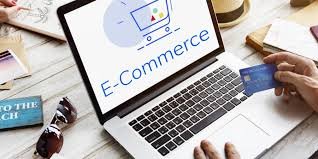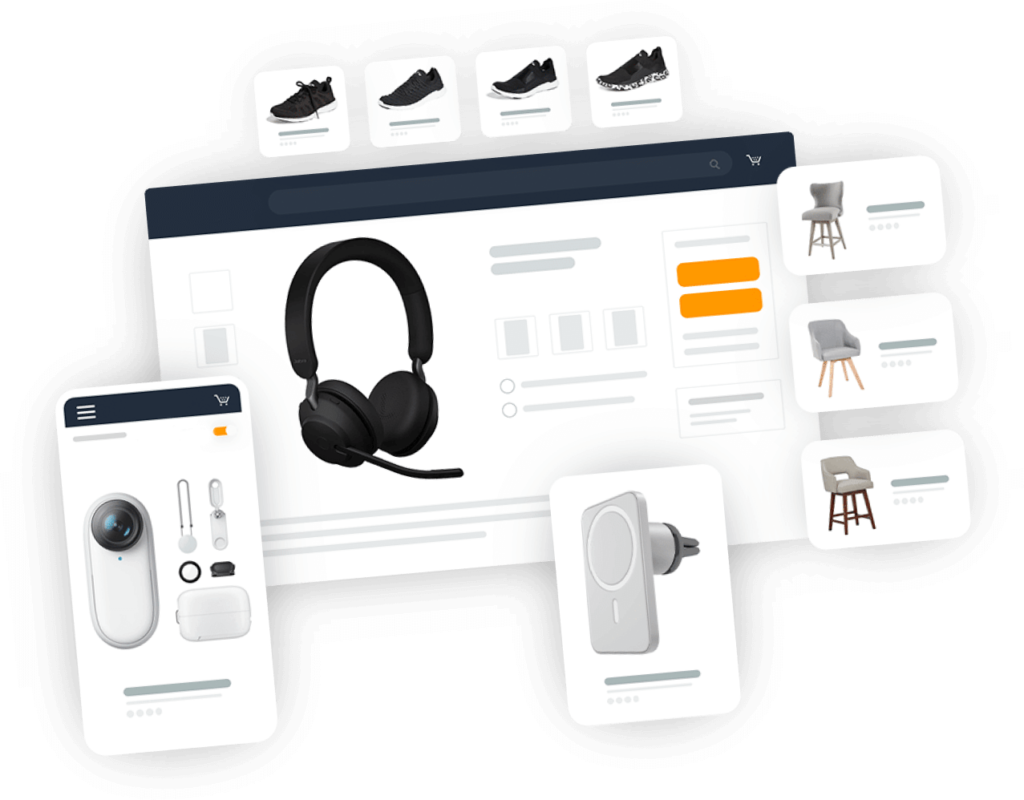Private Labeling in Building Your E-commerce Brand
Private labeling in e-commerce allows brands to control product quality, pricing, and branding, offering higher margins and exclusivity. Learn how to succeed.

The Role of Private Labeling in E-commerce: Building Your Brand from Scratch
Introduction
As e-commerce continues to surge, one of the most effective ways to build a unique brand is through private labeling. Private labeling allows businesses to create their own exclusive products, sourced from third-party manufacturers, and branded to fit their image. This strategy offers entrepreneurs the opportunity to control product quality, marketing, and pricing while building a strong, recognizable brand.
In this article, we’ll explore the ins and outs of private labeling, the benefits and challenges it brings, and the steps you need to follow to build a successful private label brand.
1. What is Private Labeling in E-commerce?
Private labeling in e-commerce refers to the process of sourcing products from manufacturers ![]() and branding them as your own. These products are usually created and packaged by the manufacturer but are sold under your brand name. Unlike reselling generic products, private labeling offers more control over the final product and its presentation.
and branding them as your own. These products are usually created and packaged by the manufacturer but are sold under your brand name. Unlike reselling generic products, private labeling offers more control over the final product and its presentation.
The Private Labeling Process:
- Sourcing: Identify and partner with reliable manufacturers who can produce products according to your specifications.
- Branding: Customize the product with your brand’s logo, packaging, and unique selling points.
- Selling: List your private label products on e-commerce platforms such as Amazon, Shopify, or your own website.
Example
Many popular products, such as electronics, skincare, and supplements, are sold under private labels. For instance, Anker, a well-known brand for phone accessories, operates on a private label model by sourcing their products from manufacturers and branding them with their logo.
2. Benefits of Private Labeling
Private labeling offers several advantages for businesses looking to create a distinctive brand and maximize their profits. Here are some key benefits:
 Higher Profit Margins
Higher Profit Margins
Since private label products bypass middlemen, businesses can enjoy higher profit margins. By sourcing directly from manufacturers and selling under their brand, businesses have more control over the pricing structure and product costs.
Brand Control
With private labeling, you have full control over product quality, design, and marketing. You can ensure that every product sold meets your brand’s standards, which is critical for customer satisfaction and retention.
Exclusivity
Private label products allow you to create exclusive items that cannot be found elsewhere. This differentiation in the market can be a powerful driver of consumer demand.
Customization
Private labeling allows you to tailor products to suit your target audience. You can create unique variations or bundles that cater to specific customer needs, enhancing your brand’s appeal.
3. Challenges in Private Labeling
While private labeling offers great opportunities, it’s not without its challenges. Here are some common hurdles businesses face:
Finding the Right Manufacturer
Choosing the right manufacturer is critical to the success of your private label brand. You must ensure that the manufacturer is reliable, produces high-quality products, and can meet your production and delivery requirements. Poor quality or delayed shipments can severely harm your reputation.
Brand Building from Scratch
Starting from scratch means you must invest time and effort into building a strong brand identity. This includes developing a unique selling proposition (USP), crafting compelling messaging, and designing eye-catching packaging.
Inventory Management
Managing stock levels and fulfillment can be tricky. Running out of stock can hurt sales, while overstocking can tie up capital. Efficient inventory management systems and demand forecasting are key to minimizing risks.
4. Building a Successful Private Label Brand
Building a private label brand involves several strategic steps. Here’s how you can get started:
Choosing the Right Niche
The first step in building a successful private label brand is selecting a niche. Look for areas where there is demand but not excessive competition. Research trends, conduct competitor analysis, and target a specific audience with tailored products.
Developing a Unique Selling Proposition (USP)
What makes your product different from the rest? A strong USP will make your brand stand out in a crowded market. It could be anything from product quality, price, features, or customer service.
Designing Your Brand Identity
Packaging, logos, and overall design should align with your target audience's preferences. Invest in professional branding to create an image that resonates with your customers. A strong visual identity will set your private label apart from competitors.
5. Role of E-commerce Platforms in Private Labeling
E-commerce platforms play a crucial role in the success of your private label brand. When choosing a platform, consider the following:
Platform Selection
Platforms like Amazon, Shopify, and Etsy are popular for private label businesses. Amazon offers a large customer base, while Shopify allows you to set up your own brand store. Etsy is great for creative or handmade products. Choose a platform that aligns with your business model and goals.
Store Management
E-commerce platforms often provide tools for managing inventory, processing payments, and handling customer service. Using these tools effectively can streamline operations and ensure smooth business flow.
6. Marketing Strategies for Private Labels
Once your private label products are ready to be sold, it’s time to focus on marketing. Here are some strategies to help you attract customers:
Social Media Marketing
Leverage platforms like Instagram, Facebook, and Pinterest to create awareness around your brand. Engage with your audience through posts, stories, and ads to build a loyal following.
Paid Ads & SEO
Paid advertising through Google Ads or Facebook Ads can help drive targeted traffic to your product pages. Additionally, optimizing your product listings for search engines will increase your visibility in organic search results.
Customer Reviews
Positive customer reviews are essential for building trust. Encourage satisfied customers to leave feedback and use it to attract new buyers. User-generated content, such as photos or videos showcasing your products, can further boost credibility.
7. Case Studies and Examples
Successful Private Label Brands
Some brands have built highly successful businesses by leveraging private labeling. For example, Glossier turned their skincare line into a massive success by starting with a few private label products and growing their range over time. Anker, another example, created a trusted brand in the tech accessories space through private labeling.
Lessons Learned
Successful private label brands teach us several valuable lessons:
- Focus on niche markets.
- Provide excellent customer service.
- Maintain a strong brand identity.
- Adapt to market trends and consumer preferences.
8. The Future of Private Labeling in E-commerce
The future of private labeling looks promising, with increasing trends in customization, sustainability, and innovation. Consumers are becoming more conscious of the products they purchase, and businesses can capitalize on this by offering eco-friendly, ethically sourced private label products.
Emerging Trends
Expect to see more private label brands incorporating sustainable practices and offering products that meet specific consumer needs. Innovations in packaging, such as biodegradable materials, will also gain traction.
Customer Experience
As the e-commerce landscape evolves, customer experience will be more important than ever. Brands must not only offer quality products but also provide seamless shopping experiences, fast shipping, and responsive customer support.
Conclusion
Private labeling offers a unique opportunity to build a distinctive brand in the competitive world of e-commerce. By controlling product quality, pricing, and branding, businesses can create exclusive products that resonate with consumers. While challenges exist, the rewards of building a successful private label brand make it an appealing strategy for aspiring entrepreneurs.
With the right approach, private labeling can be the key to long-term success in the growing e-commerce market. The future is bright for businesses that are ready to embrace this strategy and adapt to emerging trends.
What's Your Reaction?





















